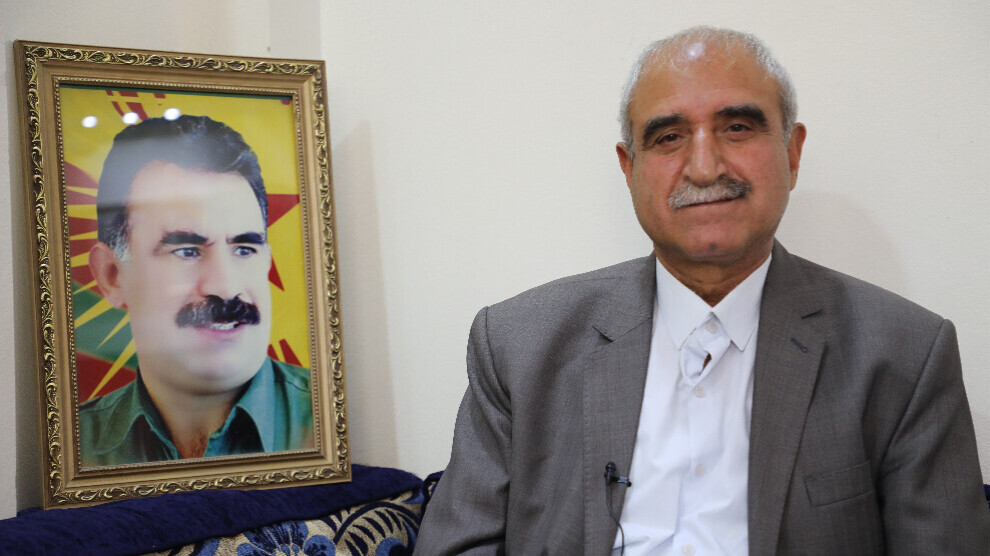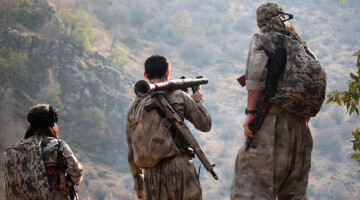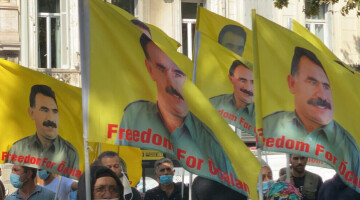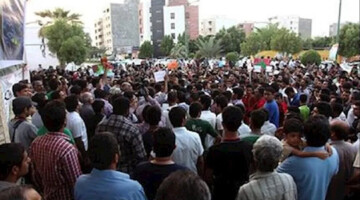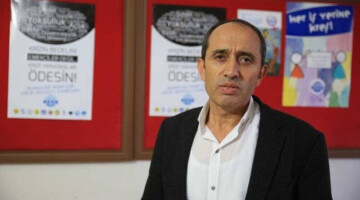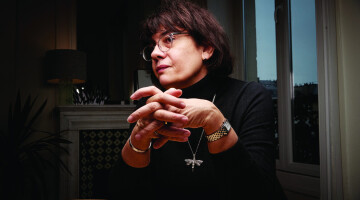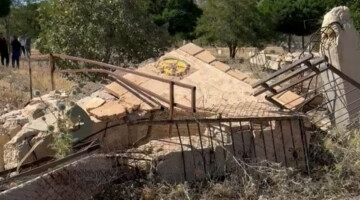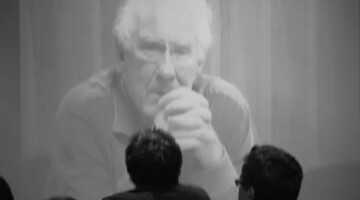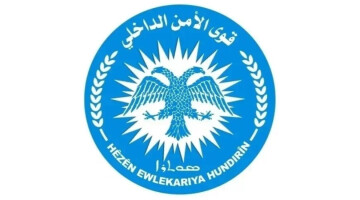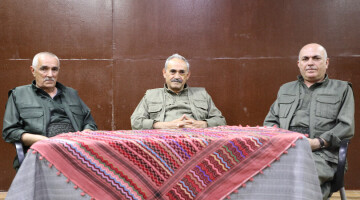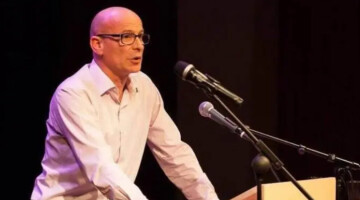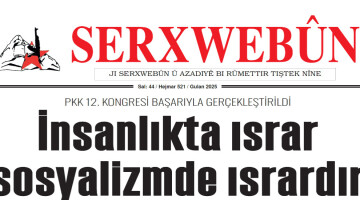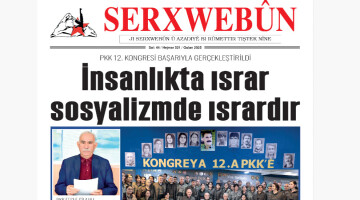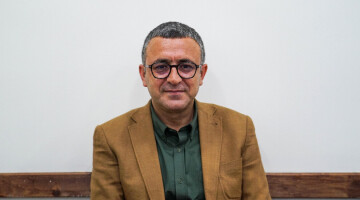Elî Bekir (64), a native of Dirbesiyê, met the Kurdish Freedom Movement when he took part in relief efforts for the wounded survivors of the Halabja Massacre. He was not alone, his daughters Gulistan and Rûken joined his struggle. He has never given up despite the crackdown of the BAAS regime, following in the footsteps of his daughters who were martyred. Currently, he is serving the Rojava Revolution by communicating with the families of the martyrs.
Elî Bekir is a Rojava resident who has been serving the Kurdish people and contributing to the preservation of Kurdish national values since 1988. He speaks about his devotion to the Kurdish Freedom Movement: “Öcalan’s philosophy encourages the Kurdish people to embrace their national values. Militants who sacrificed themselves for the Kurdish Freedom Struggle were not advancing for their own interests, they were rather dedicating their entire lives to the Kurdish people. I was very impressed by that. For this reason, I have remained loyal to the Kurdish Freedom Movement since the Halabja Massacre, and from that day on I joined their activities as a militia.”
Arrested 7 times
Bekir stated that although he was arrested 7 times, he has never bowed to the persecution by the BAAS regime. He said: “The Kurdish Freedom Movement could not act comfortably inside Syria. Our every step was under government surveillance, and those who were exposed were arrested and tortured by the BAAS regime. One of them was me. Numerous people have disappeared. We worked hard. We were among our people every day and we were talking about the struggle and the ideas of Öcalan. While some of us were secretly teaching Kurdish, others were taking part in organizing activities. We were successful as a result of all our efforts.”
Meeting with Öcalan
Bekir revealed that his only dream was to meet Öcalan. He said: “No leader in entire Kurdish history has fought for the Kurdish nation like Öcalan. For the first time, the Kurdish people were struggling as a whole. A pure, honest and disinterested struggle. There was a huge participation from all sections of society. These people were university students, educated and knowledgeable people, they were abandoning their personal lives and parents, going to the mountains and fighting in the cities. Of course, I was a supporter, too, and I was very curious about Öcalan. I was married with children, but there was so much to do for my people. At that time, the government crackdown was pervasive, and activities of the Kurdistan Freedom Movement were very intense. It was not easy to go to meet Öcalan. Sometimes friends could not reach him for days because the BAAS regime controlled the roads very tightly. Friends said in 1995 that they would take a group of people to meet Öcalan and I was in that group. It was my dream to see him. I went to Damascus with a group of about 25 people and had the opportunity to meet Öcalan. We stayed with him for three hours. He made evaluations about family, society and the Kurdish nation. We were fascinated as a group, we were in shock, because we were introduced to new ideas. He never forgot to glorify and value. He used to criticize, he made a lot of criticism that day, but he was expressing our reality and was dealing with the question of how to continue.”
His two daughters joined the guerrillas
Bekir said that there was a change in the way he carried out his struggle after this meeting. He continued: “Blood of our people was shed in this struggle. Our people paid a price at every step. A person who is not free is no different from a dead person. I reviewed my activities up to 1995 and found them insufficient. I realized that there was no work more sacred than serving the Kurdish nation and I decided to continue the struggle with my family. My children started working in different cities and contributing to the Kurdish Freedom Struggle. Some of them participated in cultural and artistic activities, some of them participated in Kurdish language education. Gulistan and Rûken decided to become guerrillas and neither their mother nor I resisted their decision. When they were martyred, we were proud of them and brought their struggle to this day.”

